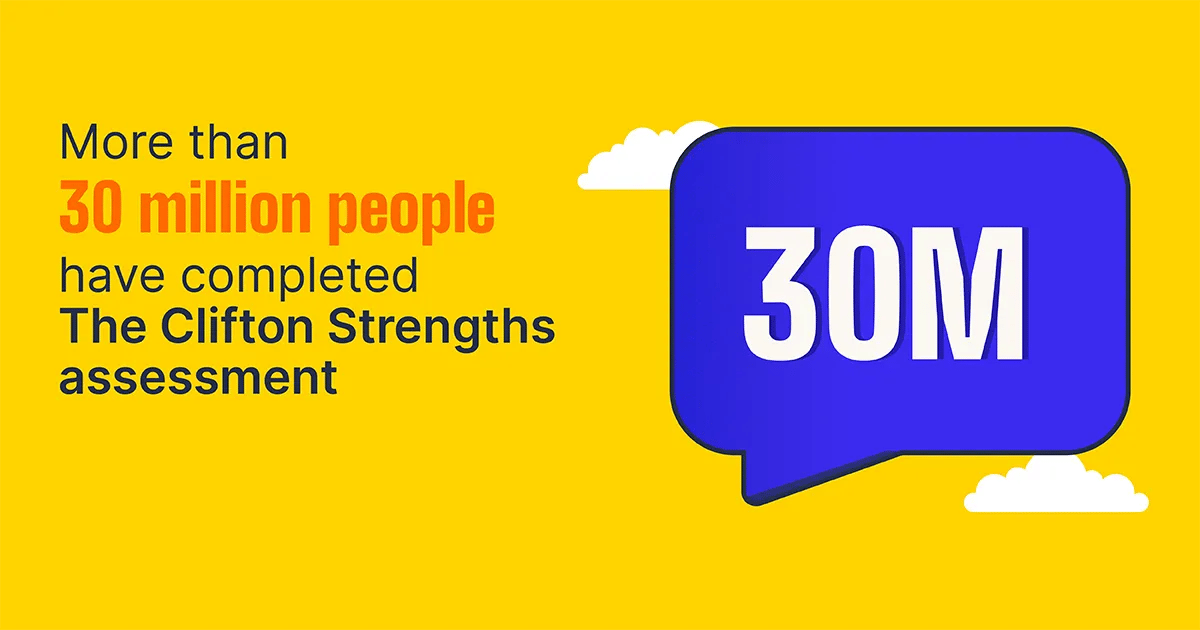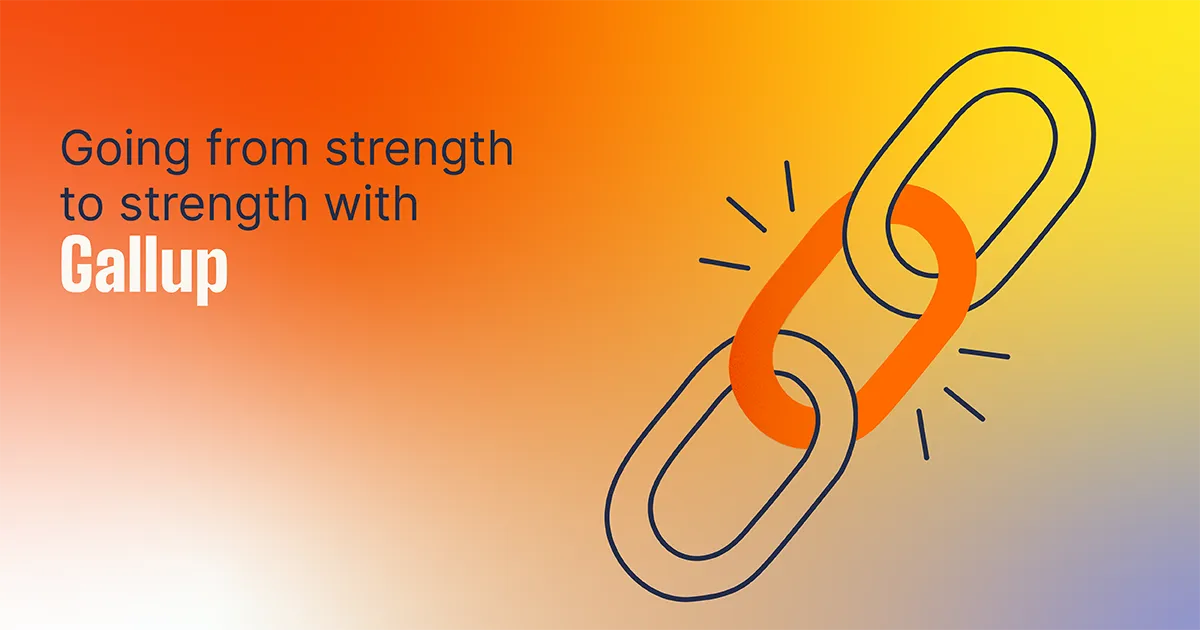There are numerous aptitude tests or personality assessments currently being used when new hires join a company. These tests serve to better position team members within a company, to allocate opportunities to improve their weaknesses or to better understand their vocational strengths. While this all sounds promising for both parties, the individual being assessed could be subjected to a scenario that regularly pits their strengths against their weaknesses.
At Boldr, we believe that talent is equally distributed, but opportunity is not. Since we are always on the hunt for talent in the most unlikely of places, we became acutely aware of the advantages of acknowledging an individual’s strengths instead of what might be holding them back. We were looking for a more uplifting way of determining a person’s worth in a company. That’s how we found Gallup.
The current state of the modern workforce
The more traditional assessments usually provide a lot of information to digest, which serves the purpose of creating personal awareness, but the problem lies in the application of this information. While there is nothing fundamentally flawed about other aptitude tests or assessments, they often fail to create a long-term impact for the company.
It’s important to note that day-to-day business has undergone numerous changes in recent years, which has caused people to act and behave differently. The successes in creating workplace diversification, equality, fair pay, hybrid working arrangements, and the like, have created an environment that puts the spotlight on the individual, not the position requirements. All of these changes were further exacerbated or cemented by the pandemic.
Well-being in the workplace
Gallup, Inc. is an advisory firm that was founded by George Gallup in 1935. With more than 80 years of data collection and analytics experience, they have become specialists in helping companies overcome recruitment or employment challenges. According to research compiled over the years, Gallup has determined that there are essentially five interrelated and interdependent elements of well-being that are considered to be the currency of a life that matters. These are:
- Career
- Social
- Financial
- Community
- Physical
Statistically, employees with well-being across all five of these facets of their lives are 81% less likely to seek out a new employer. Gallup further conducted in-depth analyses of 112,000 business units in 96 countries and found that 60% of people are emotionally detached at work, while 95% of people who are thriving at work report being treated with respect.
The benefits of a strengths-based approach
In the 1990s, a notable educational psychologist called Donald Clifton set out to create an assessment tool for Gallup that could hone in on the strengths that helped individuals to excel in their roles. This valuable tool, which would later become known as the CliftonStrengths assessment, is currently being used by 90% of all Fortune 500 companies and has already been completed by more than 30 million people around the world.

According to Mari Parker, Chief Operating Officer at Boldr, the idea of a strengths-focused assessment resonated with the company’s core values and would bring out the best in its team members. “As a people-centric ethical outsourcing company, Empathetic and Authentic are two of our cherished values,” explains Mari. “However, we’ve become so programmed to find ways of improving ourselves, that we often focus on our weaknesses. This is a sure way to sacrifice that part of ourselves that makes us unique or that helps us to connect with each other. We wanted each team member to celebrate and own what they are naturally good at and help them to find or explore their authentic genius.”
Mari believes that the Gallup Strengths program gifts each individual with an awareness of their own strengths and an opportunity to fully understand and embrace these strengths before coming to terms with their non-strengths. “Using this structured framework has changed the way I look at the value I bring to the world – and I hope it will support our team members on their journey to exploring their own strengths.”
Boldr adopted this program because we believe in empowering our team members across the world by helping them understand and utilize their strengths. That way they get to grow while doing what makes them happy, which is good for overall mental health. It’s not only a way of uniting teams through the sole narrative of building on each other’s strengths, but it also helps to conduct effective one-on-one meetings. We have subsequently explored new ways to conduct Performance Improvement Plans (PIPs) by focusing on the things our team members do well, which simplified and streamlined our goal-setting process.
Surette Botha, Boldr’s Senior Leadership Development Specialist and certified Global Gallup Strengths Coach, explains the overall impact this shift has had within the teams, as well as the rest of the company:
“It makes more sense to focus on developing someone’s strengths, rather than spending copious amounts of energy to improve their weaknesses. A strengths-based development strategy starts by looking at what people do really well. The results of focussing on, and developing people’s strengths make for happier and more engaged team members, which filters through to the workplace or team environments. Through this process, we can build dynamic teams that rely on and tap into each other’s strengths, valuing their authentic talents and acknowledging their non-strengths, while still finding purpose and gratitude for their contributions.
We offer the Lead-With-Strengths Program, where the participants complete the Gallup Strengths Assessment, attend workshops, and receive coaching to name, claim, and aim their strengths. Subsequently, we created a team grid where everyone’s strengths are plotted. This grid serves as a resource that managers and leaders can use to see the combined strengths of the team. Beyond that, we are coached on how to interact with each person. To build the Strengths culture in Boldr we aim to initiate conversations, interaction, and opportunities to grow and develop each person’s strengths. And I absolutely love that part of my job.”
The Strengths strategy has helped us to build deeply motivated and highly effective global teams for our clients. While it has empowered our team members in their career journeys or their personal development, it has also enabled our teams to pivot, scale, or adapt to our client’s needs. If you are excited about the idea of building a global, strengths-focused team, then let us guide you through the process.
James Fouche is the Content Manager at Boldr, as well as an author and a columnist. He is passionate about sharing his love of reading and writing with others.


